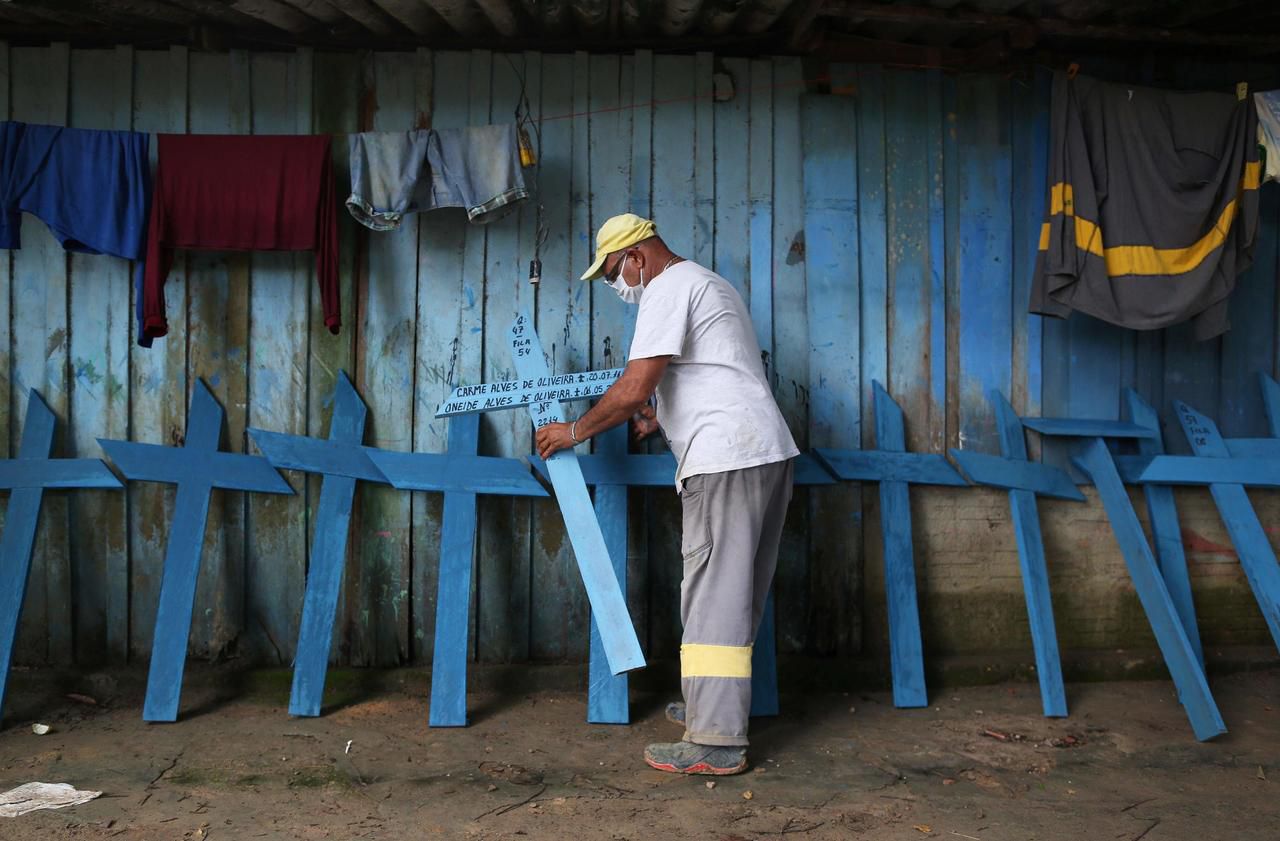This is a new step in the progression of the Covid-19 epidemic in Brazil, one of the most seriously affected countries in the world.
The inhabitants of the city of Manaus, located in the Amazon rainforest, have reached a level of collective immunity making it possible to temporarily control the circulation of the virus, according to a study conducted jointly by several researchers from Brazilian, American and British universities.
This study was carried out between March and September on thousands of samples taken over several months and from donated blood in the region.
It was posted on medrxiv last Monday, but has yet to be peer reviewed.
According to its authors, 66% of the population of Manaus has antibodies against Sars-Cov-2 (compared to 0.7% in March, at the start of the epidemic).
A rate that would allow us to say that collective immunity has been achieved in the city: the study recalls that other work estimated the minimum threshold of immunity between 20% and 43%, and that the simplest epidemiological models were around 60%.
A consequence of the epidemic out of control
Thanks to this immunity, the epidemic is more easily managed.
"It appears that exposure to the virus itself has led to a drop in the number of new cases and deaths in Manaus," medical professor Ester Sabino said during a presentation of the study to the Support Foundation. looking for the State of Sao Paulo (Fapesp), which has helped finance its work.
The region did not have collective immunity as a strategy.
Rather, it is a consequence of a lack of control by the health authorities.
"Collective immunity by natural infection is not a strategy, it is a sign that a government has failed to control an epidemic and that it is paying the price in lives lost", tweeted Florian Krammer , professor of microbiology at the Icahn School of Medicine at Mount Sinai Hospital in New York.
Since I already see it going this way: I did not endorse community immunity as a strategy.
Community immunity via natural infection is not a strategy, its a sign that a government failed to control an outbreak and is paying for that in lives lost.
https://t.co/o0hxHHTaho
- Florian Krammer (@florian_krammer) September 22, 2020
In Brazil, President Jair Bolsonaro has indeed long linked the scale of the epidemic, even after being infected with the coronavirus.
The country now has nearly 140,000 deaths, making it the second hardest hit in the world.
More than 4.6 million infections have also been reported there.
A disastrous human cost
From the month of May, on the ground, caregivers found themselves overwhelmed.
At the height of the epidemic, the city of Manaus was the scene of images of overwhelmed hospitals, corpses piled into refrigerated trucks and mass graves.
It is still difficult to explain concretely how the contaminations spread there more quickly than elsewhere.
"Low socioeconomic conditions, overcrowding in homes, limited access to clean water, dependence on travel on high-risk boats (in which overpopulation accelerates contagions)" are possible explanations, reads- one in the study.
By naturally limiting new infections, herd immunity has reduced the number of infections and deaths today.
But by causing many in its path.
Manaus and its 2.2 million inhabitants have recorded 2,462 deaths from Covid-19.
In relation to the number of inhabitants, its death rate would be the second highest in the world, with 100.7 deaths per 100,000 inhabitants.
Newsletter - Most of the news
Every morning, the news seen by Le Parisien
I'm registering
Your email address is collected by Le Parisien to enable you to receive our news and commercial offers.
Learn more
In most of the Latin American countries, also heavily hit by the virus, the death rate is much lower, oscillating between 50 and 65 per 100,000 inhabitants, as in Brazil (65.93) or Bolivia (68, 83), according to data from Johns Hopkins University.
In France, the death rate per 100,000 inhabitants is 46.94.
Temporary immunity
In the long run, immunity from natural infection does not seem to work very well.
According to Lewis Buss, one of the researchers who conducted the study, “Antibodies to SARS-CoV-2 disintegrate rapidly, a few months after infection.
This is clearly happening in Manaus, which shows the importance of taking serious steps to understand the course of the disease, ”he told the newspaper Em Tempo.
In their study, the researchers warn their readers of slight limitations in their tests.
Even though they have taken care to balance the data to make it as representative as possible, they fear that their estimate of Covid-19 seroprevalence is approximate, since the data comes from blood donations, a procedure that excludes children. , seniors and symptomatic people.
Still according to the researchers, the recent drop in infections in Manaus can also be explained, in part, by a better application of social distancing and the use of masks.
Also, beware of wanting to let the virus circulate in other regions to achieve the same rate of infections and the same immunity.
“Our results cannot be directly extrapolated to other contexts, due to differences in population demographics, behavior, vulnerability to infections, as well as implementation and adherence to non -pharmacological ", warn the researchers.
Collective immunity as a strategy is also widely criticized abroad.
At the end of March, in the United Kingdom, the idea had been touted before being totally revoked to favor confinement of the population.















